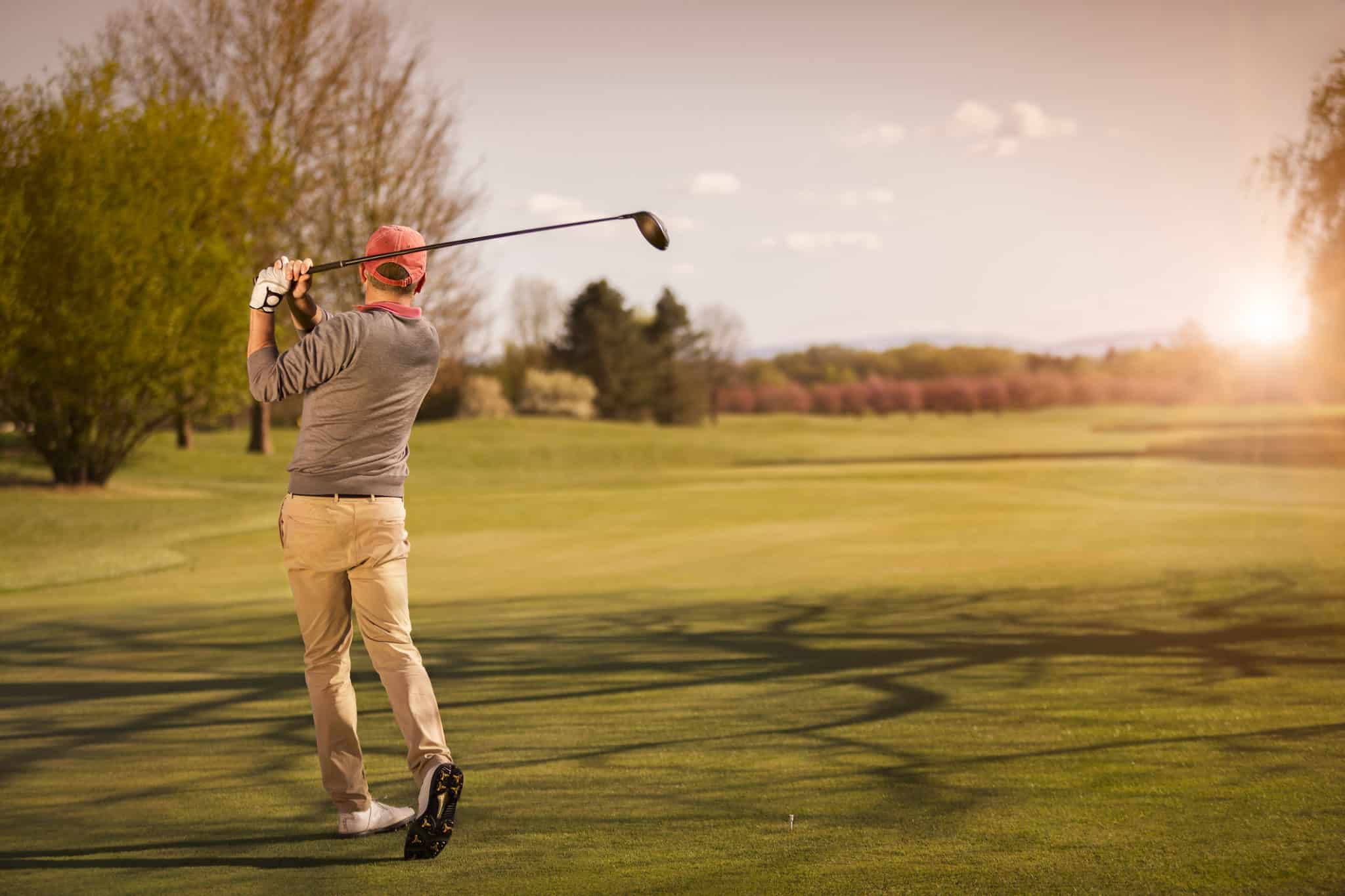
In the past few months, I’ve noticed that golf courses in our area have never been busier. Admittedly, I get a bit of an inside scoop, since my husband works at a major golf course. But that’s not the only way I can tell more people are getting back on the fairway. You see, golf injuries are definitely on the rise. So many people have walked into my clinic over the past couple of months with aches and pains that started on the back nine or the driving range. Why are golf injuries so common, what types of injuries are my patients facing, and what can be done to avoid them? To help you keep your game, and your body, in good shape, I’d like to answer these questions.
Why Do Golf Injuries Happen?
Picture yourself swinging a club. If you can believe it, biomechanical studies reveal this motion puts a compressive load on your spine roughly equivalent to eight times your bodyweight. In comparison, the compressive load on your spine during running is just half that, at roughly three to four times your bodyweight.
Who says golf isn’t a physical sport?
To be clear, a healthy body is usually capable of handling this amount of tension—but you can imagine how quickly this motion can lead to damage if you have underlying postural or musculoskeletal issues, or if your technique isn’t up to par (no pun intended).
Unsurprisingly, Mayo Clinic notes that the majority of golfing injuries happen due to poor technique and overuse your body just isn’t quite equipped to handle. And it’s not just the golf swing that can lead to stress, irritation, and tissue damage. Other elements of your golf game that may contribute to injury include:
- Frequently bending down to pick up your ball
- Squatting down to sight your putt
- Walking the fairway while carrying or pushing your golf bag
- Wearing ill-fitting golf shoes
Right now, there’s an added factor explaining why so many golf injuries are happening. Thanks to the pandemic—which led to massive closures of not only golf courses but gyms, too—people have been out of practice and not very physically active. With golf courses reopening, people are eager to get back out and play 18 holes, without considering that their bodies may not be quite ready for such a long day on the course.
Common Golf-Related Injuries Seen by Physical Therapists
With all these factors at play, it’s not hard to imagine how a golf injury can happen. Here are the ones I see most often among my patients:
Golfer’s elbow (medial epicondylitis), which causes pain on the inside of the elbow
Low back pain, often due to a strained muscle, altered joint alignment, or disc bulge
Plantar fasciitis, which causes pain and inflammation on the bottom of the foot and heel
Achilles tendonitis, which causes pain on the back of the ankle
Knee pain, often due to knee ligament sprains caused by twisting, bending, and squatting
Carpal tunnel syndrome (median nerve compression in the wrist), which can cause wrist and hand pain or tingling
Shoulder pain, usually due to irritation of the small tendons of the rotator cuff
How Physical Therapy Can Help Your Golf Game?
Other than affecting your game, here’s the main issue with an acute golfing injury:
If left untreated, it can easily become a chronic issue that starts to affect other areas of your life, too.
That’s why I advise anyone who is concerned about pain, tenderness, swelling, or decreased range of motion during a golf game to contact a physical therapist. Through individualized therapeutic exercises along with manual therapy techniques, a PT can help your body heal and reduce pain without the use of medication. The result? You get back on the course as soon as possible feeling and moving better.
A physical therapist can also assess and improve your posture, correct underlying musculoskeletal imbalances or movement patterns you may not be aware of so you can avoid recurring injury in the future.
Are you a golfer? Connect with our team at PhysioFit to find out how we can help you heal a golf injury fast.

 Los Altos, CA
Los Altos, CA
